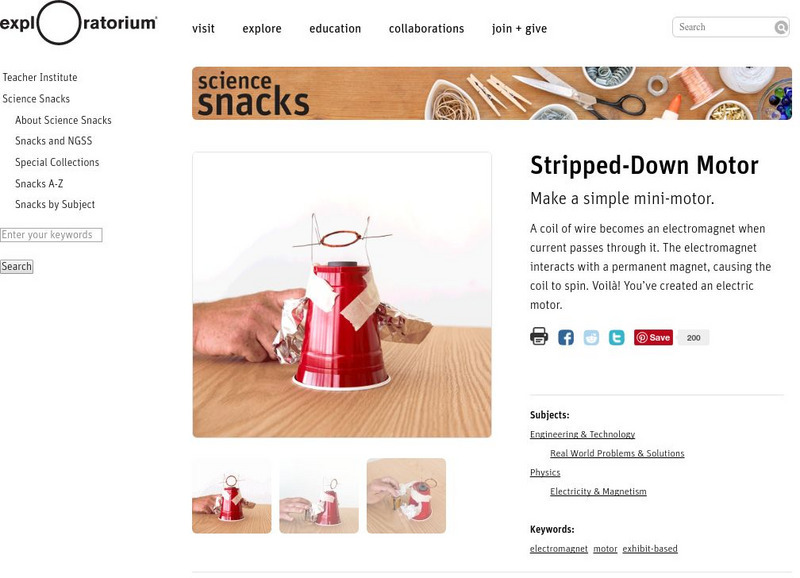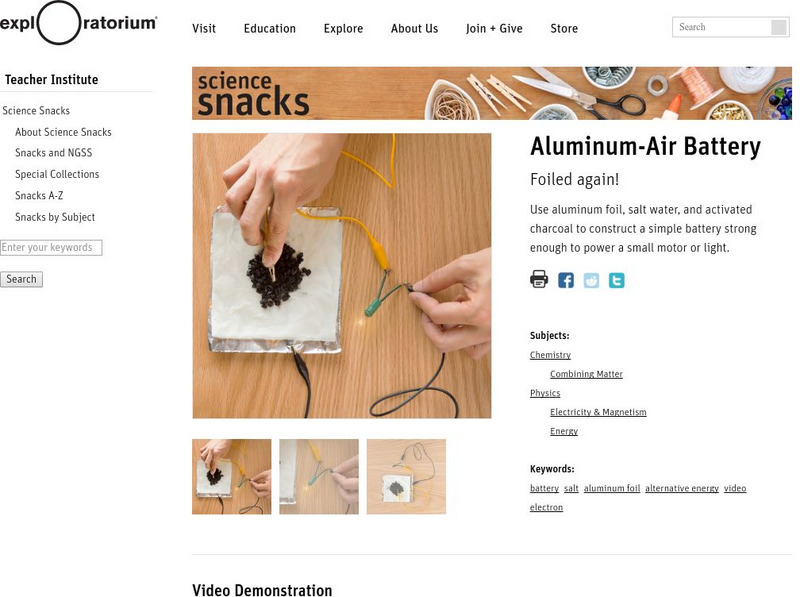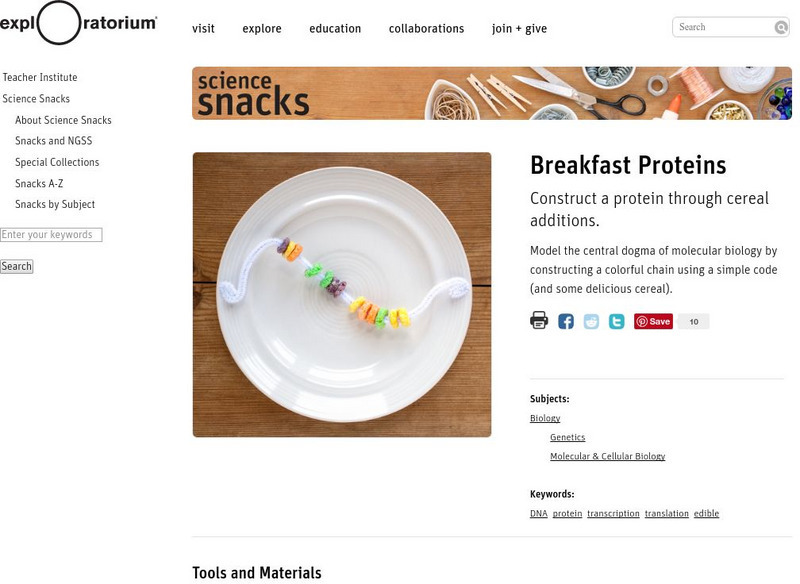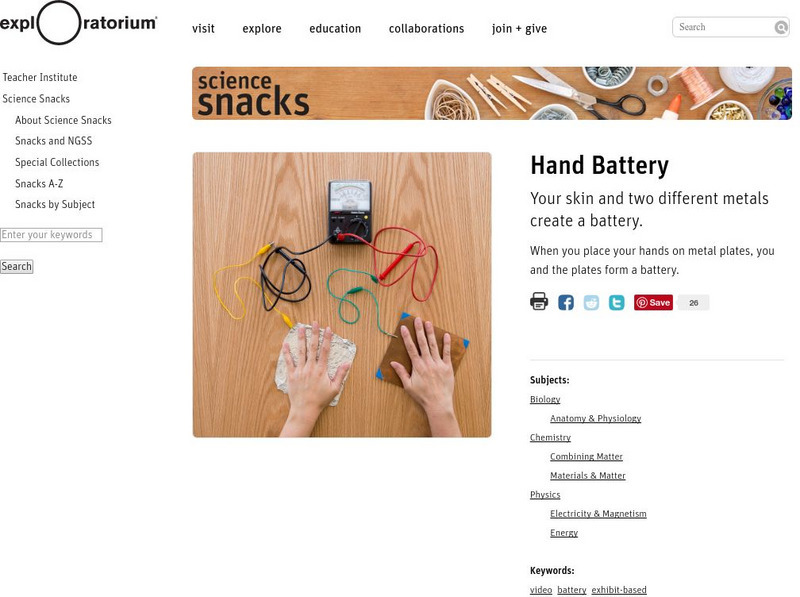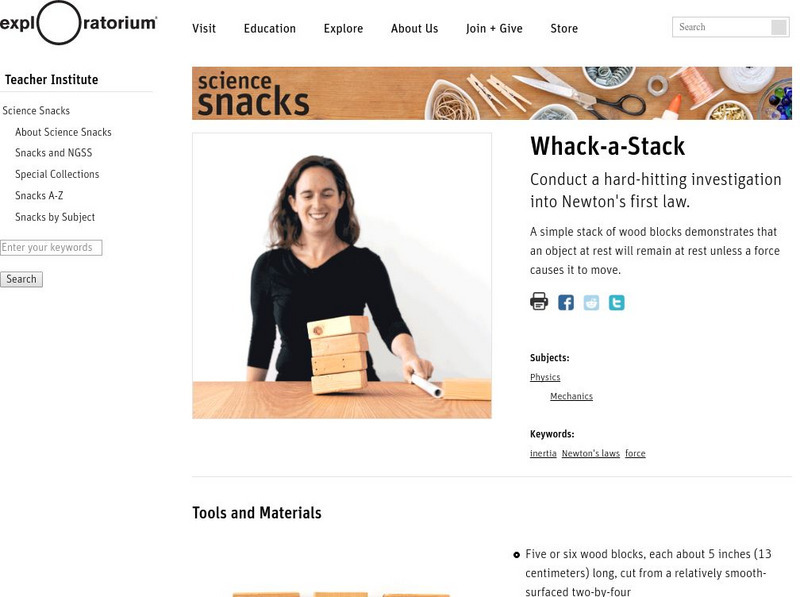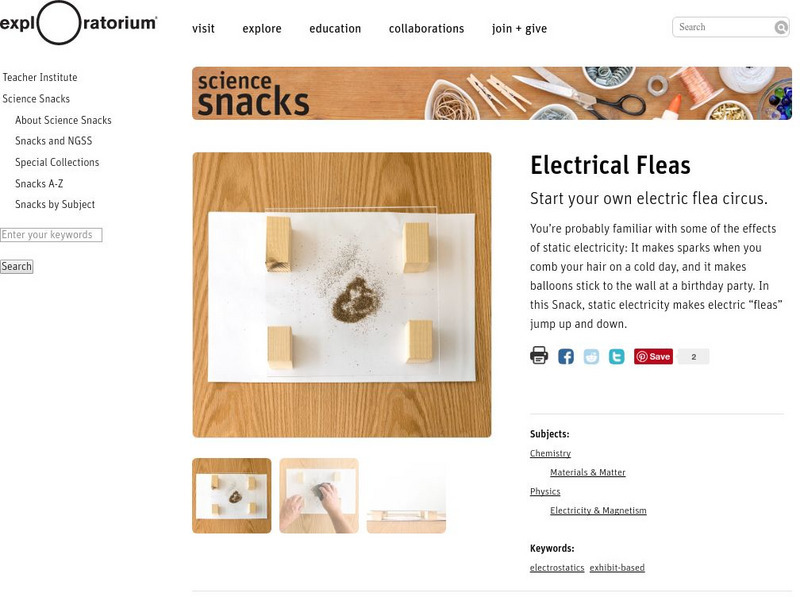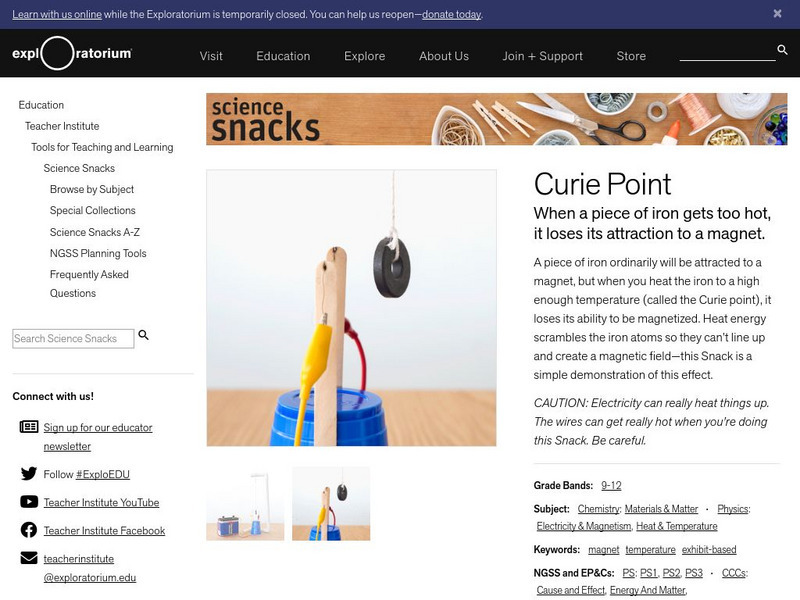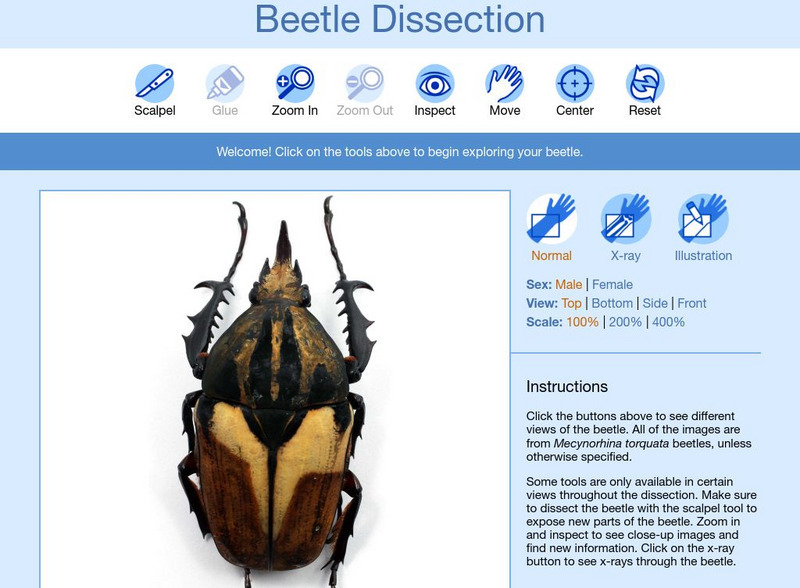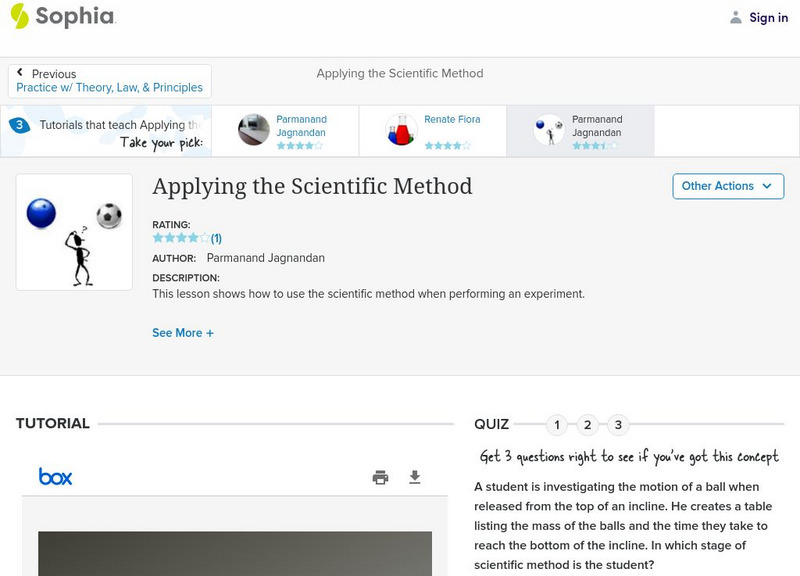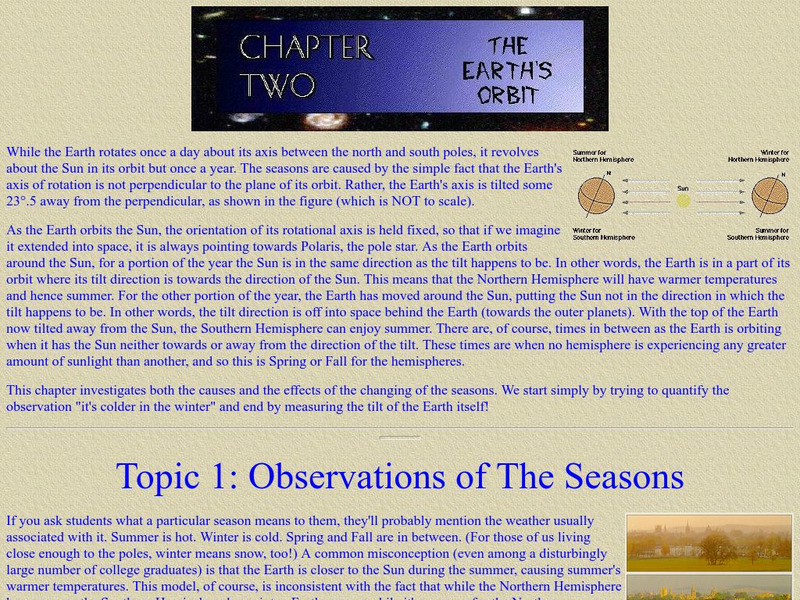Hi, what do you want to do?
Exploratorium
Exploratorium: Science Snacks: Stripped Down Motor
Learn how to make an electric motor in this simple activity.
Other
Starry Skies: How Do Fossils Form?
Directions and materials needed to make a modern day fossil.
Exploratorium
Exploratorium: Science Snacks: Aluminum Air Battery
Create a battery that is strong enough to power a light or a small motor in this activity. Activity uses simple materials such as: aluminum foil, salt water, and charcoal to make this battery.
Exploratorium
Exploratorium: Science Snacks: Breakfast Proteins
Model the process of transcription and translation with this simple activity using cereal chains.
Exploratorium
Exploratorium: Science Snacks: Hand Battery
In this activity students will create a battery by placing their hands on two different metal plates.
Exploratorium
Exploratorium: Science Snacks: Marshmallow Puff Tube
An engineering design process project where you will try different lengths of cardboard tubes to see how far you can blow a marshmallow. Project uses Newton's principles of unbalanced force to shoot the marshmallow far.
Exploratorium
Exploratorium: Science Snacks: Whack a Stack
Investigate Newton's first law of motion using just a set of wood blocks.
Exploratorium
Exploratorium: Science Snacks: Electrical Fleas
Create your own "flea" circus in this activity by using the effects of static electricity. Students will observe a charged object attraction to the opposite charge causing the object to jump.
Exploratorium
Exploratorium: Science Snacks: Slinky in Hand
Use a Slinky toy to investigate the resonance of transverse and longitudinal waves.
Exploratorium
Exploratorium: Science Snacks: Vector Toy
Try this walking toy activity to learn about the directional forces that act on it to control its movements.
Science Bob Pflugfelder
Science Bob: Eggshell Geode Crystals
Science Bob provides instructions for how to form geode crystals in eggshells using common supplies with information on why it works.
University Corporation for Atmospheric Research
Ucar: National Center for Atmospheric Research: Severe Weather Storms [Pdf]
Teachers and/or students are given four scientific experiments related to severe weather. Included are making clouds, homemade lightening, tornado in a bottle, and dissecting hailstones. Dramatic photos of severe weather conditions are...
Huntington Library
Huntington Library:garden Lesson Plans: Fruit Salad Hold the Dna, Please [Pdf]
After learning about DNA and how it is used in crime scene analysis, students take part in a lab activity where they extract DNA from ripened fruit.
Exploratorium
Exploratorium: Science Snacks: Mirrorly a Window
Understand that what you see is often affected by your expectations of what you think you should see. This activity will explore the sensation you feel when your brain expects to see something.
Science Bob Pflugfelder
Science Bob: Make a Cartesian Diver!
This site presents a procedure for creating a cartesian diver, a miniature submarine which rises or sinks depending upon the water pressure within a closed bottle. The site also introduces basic concepts of water and air pressure.
Exploratorium
Exploratorium: Science Snacks: Curie Point
Did you know that a piece of iron can lose its magnetism if heated too high? There is a point called the Curie point when iron is heated to a high enough temperature that its iron atoms are scrambled and can't line up to form a magnetic...
Educaplus (Jesús Peñas Cano)
Educaplus: Masa Y Peso
Is the mass the same as the weight? Try this little experiment to find out the answer.
Exploratorium
Exploratorium: Science Snacks: Magnetic Fruit: Push Me a Grape
An online activity which illustrates the magnetic property of diamagnetism associated with water. Contains a simple procedure and then a good explanation of the magnetic interactions that were displayed by the grapes.
Arizona State University
Arizona State University School of Life Sciences: Beetle Dissection
Have you ever wanted to see what is inside of a beetle? Each of the images provided here is from Mecynnorrhina torquata beetles unless otherwise specified. Students are able to dissect beetles with the scalpel tool to expose new parts of...
Other
Air Blaster: Smoke Ring Launcher
Steve Spangler shows how you can blow a cup off of your friends head and his or her papers off the desk with this "air blaster" or "AirZooka." Demonstrate that air does take up space and how air moves. What fun!
Sophia Learning
Sophia: Applying the Scientific Method
Learn how to use the steps of the scientific method to carry out a scientific investigation.
Harvard University
Eyes on the Sky, Feet on the Ground: The Earth's Orbit
Students perform many inquiry activities related to Earth's orbit. Included are recording daily temperatures, observing the sun's path over several weeks, tracking sunrise and sunset times, and angle of sunlight. Diagrams make lessons...
Discovery Education
Discovery Education: Science of Everyday Life: Cushion It! [Pdf]
Students investigate the best way to cushion wrap a sugar cube to protect it from a collision in this lesson plan. During their investigation, students learn about collisions and variables that affect collisions.
Discovery Education
Discovery Education: Science of Everyday Life: In the Mix [Pdf]
In this lesson plan, young scholars use different types of filters to separate the mixture. This lab requires the students to use engineering skills to solve a real-world problem of filtering water.
Other popular searches
- Life Science Experiments
- Egg Science Experiments
- Hands on Science Experiments
- Space Science Experiments
- Food Science Experiments
- 5 Minute Science Experiments
- Simple Science Experiments
- Air Science Experiments
- Fun Science Experiments
- Earth Science Experiments
- Science Experiments Units
- Sea Life Science Experiments





